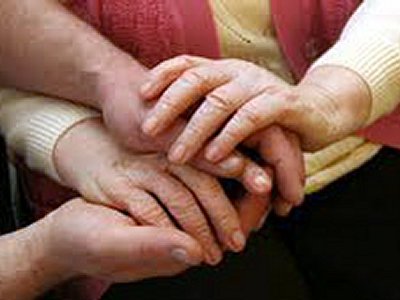
STANDING ON THE SHOULDERS OF TEENAGERS
Any focus on reaching young people with the good news of Jesus Christ is to be welcomed, but there is a tendency for some in the Church to see young people as a collective rather than individual people with specific and differentiated needs.
Adults often feel they don’t understand young people because they remember how they were also misunderstood as teenagers. And every generation of young people tends to define themselves against the generation above. Added into this mix today is a younger generation of digital natives, who grasp technology in a different way and have a surfeit of experiences unavailable to previous teens.
Though there are critical new developments like social media, there is much that does not change from teenage generation to teenage generation Lucy Foulkes, in Coming of Age: How Adolescence Shapes Us (Vintage, 2025) has made a study of these issues. Her case studies are of adults reflecting back on being young people and she knows the risks involved in how people remember. When we look back, we put the pieces back together in a different way to how they were experienced at the time, often imposing a story on the past to make sense of the present; literally, we re-member, but in a different way. Allowing for this, she interviewed people still near enough to their teenage years to be able to reflect with memory, honesty and self-awareness.
Many of the themes that emerge will strike a chord with other reflective adults: the struggle for popularity; the existence of ruthless social pecking orders; how appearance and image have to be just right; the reality of bullying; romantic crushes and first love; risk taking round sexual intimacy, alcohol and drugs; loss and bereavement.
Teenagers are full of these daily anxieties, and though adults remember their youth, they tend to diminish the experience of the young people around them. Years of maturity tell them these are the mini dramas of growing up, skins that everyone eventually sheds. Except they don’t.
Research shows that some of these issues have a lasting, sometimes profound effect on people later in life. Bereavement is one of the most glaring, and though most people adapt eventually to life without someone they love, it can make a big, enduring difference to their experience of adulthood. This is true of bullying also. Many adults revert to adolescent mindsets when someone tries to bully them; it provokes a painful response, exposing wounds that have never really healed. The kind of crowd a teenager chooses to be with can have a material effect on their education and then their career, though they are entirely unaware of this in the moment. And first love can add either strength or critical weakness to adult intimacy.
Perhaps the way we read the Bible unintentionally weakens the response of adult Christians. Teenage categories don’t exist in the stories of scripture; it is a relatively new cohort. For centuries, children were expected to become adults before they had grown up. Aside from early traumas, the first three decades of Jesus are a mystery, save for the panic he induced in his mother Mary and Joseph by disappearing as a twelve year old on a trip to Jerusalem. And yet those years will have profoundly shaped his sense of self, God, family, work, community and politics – all of which will have come into play in the short teaching ministry he exercised before his death. Jesus did not leave the child inside him behind, and his call for others to approach the kingdom of God like a child suggests this.
What kind of reflection, then, do we make on our teenage years? Self-awareness helps every relationship with God, and when we ignore these years, we leave the early chapters of a novel unread. It is said that when it comes to great human achievement, pioneers stand on the shoulders of giants, building on what other people have done. But we all stand on the shoulders of the wobbly teenagers we once were, and that calls for a special kind of self-knowledge.
It is said that parents should lavish attention on their young children but that it is better to wait for the times a young person wants that attention rather than trying to impose it on them. A prayerful, attentive listening ear is the root of teenage pastoral care.





